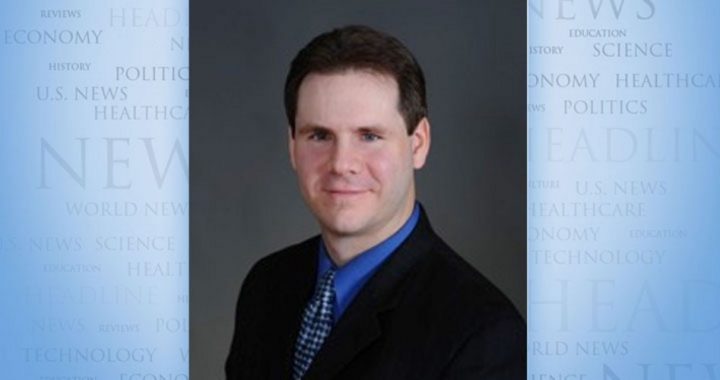
Pascal Robert cannot be confused with a conservative: He favors socialized medicine and socialized education. He cannot be mistaken for colorblind: He has characterized whites as blacks’ “oppressors.” Robert also cannot be considered American in spirit: His parents emigrated from Haiti and he blames the United States for the poor country’s woes. But on one issue, at least, the attorney and journalist agrees with robust conservatives such as Tucker Carlson:
The obsession with racial politics, the current black/white wealth gap fixation being a prime example, is a sort of con — it “protects” the pseudo-elites.
Robert further states that the “race first agenda effectively stymies political movements that would deliver” broad solutions (though his cure is just another disease).
Making his case in a recent Newsweek piece, Robert writes that the post George Floyd-incident “racial reckoning” has sparked interest in the work of intellectually vacuous “intellectuals” such as Ta-Nehisi Coates, Nikole Hannah-Jones, Ibram X. Kendi, and Robin DiAngelo. It has inspired corporations to pander to BLM and promise to appoint more black board members and give black-owned suppliers more business.
Yet despite all this “equity” talk, he notes, these policies do nothing to help the majority of black people, who are working class and poor. “Instead they serve the class interests of a narrow section of the Black elite,” Robert writes, “a fact that is obscured through talk of a shared Black political agenda and a race-first political posture.”
The journalist laments that this “race-first political posture” “stymies” movements that would benefit all working-class Americans, including blacks. Unfortunately, he cites as examples the advocacy of socialized medicine and “free college.”
Robert then writes that nowhere “is the elitist nature of this form of Black politics more evident than in the current push to ‘close the racial wealth gap.’”
“A typical example, he later notes, “is a discussion sponsored by the African-American Alumni Association of the Harvard Business School called ‘Bridging the Racial Wealth Gap by Serving on Federal Reserve Boards.’ How a program targeting Black Harvard Business School graduates is going to change the lives of poor and working-class Black Americans is not entirely obvious. But this is just one illustration of the elitist nature of the racial wealth gap discourse being promoted by corporate-friendly think tanks, finance capital funded non-profits, and academics at elite universities.”
“No one is asking Black working class and poor people, who make up the majority of Black America, if Black representation at the Fed is a primary policy concern,” Robert later adds. “American elites, Black and otherwise, are pushing these concerns from the top down, presenting more Black Americans working at the Fed as the panacea to Black America’s woes — at a time when millions of Americans find themselves looking for a pro-working class policy agenda.”
Unfortunately, however valid Robert’s racial-obsession thesis, his other diagnoses and prescriptions are generally wrong. For example, he partially blames “mass incarceration” for black Americans’ continued poverty, as if police are just indiscriminately pulling blacks off the street and locking them up. But wouldn’t a deeper cause here be the rampant criminality in the black community that leads to the incarceration? And would letting criminals stay on the streets — so they could prey on law-abiding blacks and rob their businesses — improve the black community’s economic prospects and thereby increase its wealth?
Robert also laments that the “top 10 percent of both Black and white households own nearly all the wealth of their respective racial groups.” Yet this is actually untrue. Why?
Because that wealth never belonged to “their respective racial groups” — it belongs to them.
Sure, Mr. Robert might reply that his phraseology is just a manner of speaking. But it’s also a manner of framing, and it can imply that the wealth is collectively owned but unfairly controlled by some covetous elite.
This is only true insofar as that “elite” is a pseudo-elite enjoying ill-gotten gains (e.g., via corruption and unjust taxation). Yet in identifying it, Robert cites not .01 percent of the black community but 10 percent, a figure that would include not just demagogic politicians and activists but mainly doctors, lawyers, and industrious businessmen.
In other words, it mainly comprises people who’ve done what Robert should, but doesn’t, tell all black Americans (and all poor people) to do: Get educated, don’t commit crime, develop a marketable trade, be reliable and punctual, and delay having children until married and settled.
Robert also doesn’t mention that along with the black/white wealth disparity is another race-defined one: Asian-descent Americans earn more thanwhites do. (Discussing this would detract from the race hustlers’ claim that racial wealth gaps reflect white privilege.) Unmentioned as well is that inter-group performance disparities have existed in every time and place because not all groups are identical. But then there’s what not just Robert but virtually everyone fails to say: Inter-group “gaps” — including wealth gaps — are largely irrelevant.
I’ll illustrate why with an analogy which, I know, I know, I’ve used before. And I promise I’ll use it 10,000 more times if necessary until people get the point.
Imagine two tennis centers are training children. After a given period, all the kids at the first are advanced beginners. At the second, there are some advanced beginners, a large group comprising varied intermediates, a decent-size set of advanced players, and a few approaching tournament caliber. Which center exhibits more equality?
Now, at which are the kids faring far better on average?
The lesson here is simple: Equality tells us nothing about quality. There could be equality in misery, poverty, immorality, or stupidity — or economic illiteracy.
Ironically, by failing to point this out while also citing an interesting statistic, Robert undermines his own argument. For he states that the “racial wealth gap exists primarily in the upper classes”; thus, eliminating this gap among the bottom 90 percent of Americans “would still leave 77.5 percent of this gap intact.” Of course, though, if racial wealth “equality” is at all a priority — which Robert appears to accept in principle — it then makes absolute sense to focus most on what would most help achieve it: Black pseudo-elites’ further enrichment.
This is yet another reason why Equality Dogma itself must be challenged. Thinking that “equality” per se tells you anything relevant is like thinking you could cure dwarfism by trying to make everybody the same height.


